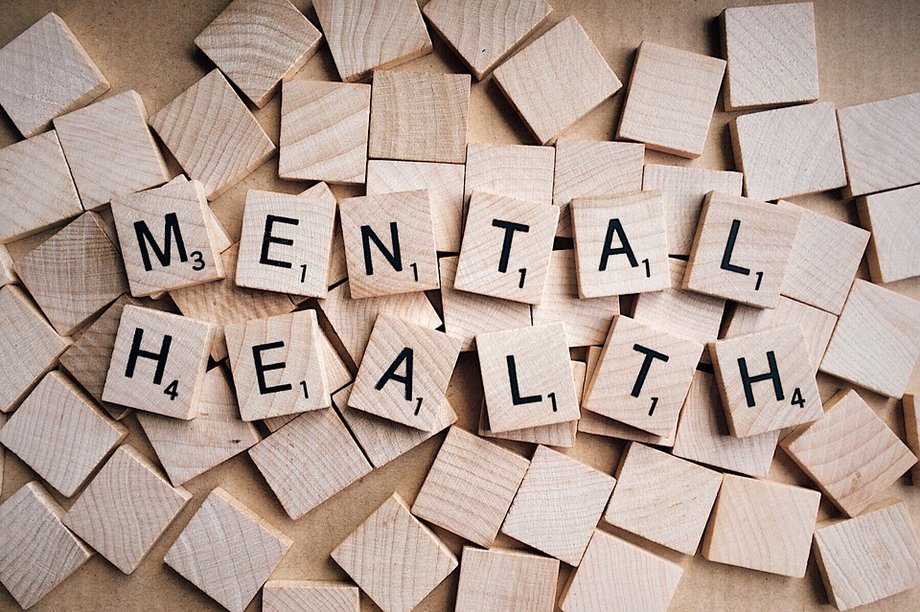10 Essential Mental Health Services in US

Are you looking for essential mental health services in the US? Well, you’re in the right place!
In this article, we will explore ten services that are crucial for your mental well-being.
From counseling and therapy to crisis intervention and substance abuse treatment, we’ve got you covered.
With support groups, case management, and online mental health support, you’ll find the assistance you need.
Plus, we’ll discuss the importance of mental health education and awareness.
So, let’s dive in and prioritize your mental health together!
Key Takeaways
- Counseling and therapy services provide guidance and support for mental well-being, using various techniques to gain insight into thoughts, feelings, and behaviors and develop coping strategies.
- Psychiatric medication management explores effective medication options and emphasizes patient adherence for successful treatment outcomes, improving overall mental health.
- Crisis intervention and suicide prevention involve a well-trained team providing immediate support, active listening, and empathy, while also increasing awareness and education about mental health and suicide.
- Telehealth and online mental health support revolutionize accessibility by connecting individuals with professionals remotely, eliminating travel barriers, and ensuring privacy and security of personal information.
Counseling and Therapy Services
One essential mental health service in the US is your access to counseling and therapy services. These services provide you with the necessary guidance and support to improve your mental well-being.
Counselors and therapists use various counseling techniques to help you address and overcome your challenges. These techniques may include cognitive-behavioral therapy, psychodynamic therapy, and mindfulness-based therapy, among others.
The effectiveness of therapy varies from person to person, but research has shown that it can significantly improve mental health outcomes. Through therapy, you have the opportunity to gain insight into your thoughts, feelings, and behaviors, and develop coping strategies to navigate life’s challenges.
It’s important to find a therapist who aligns with your needs and values to ensure the best possible outcomes. Remember, seeking counseling and therapy is a proactive step towards self-care and personal growth.
Psychiatric Medication Management
When it comes to psychiatric medication management, there are a few key points to consider.
Firstly, it’s important to explore the range of effective medication options available.
Secondly, patient adherence to prescribed medication is crucial for successful treatment outcomes.
Lastly, providing support to patients throughout their medication journey can greatly improve their overall mental health.
Effective Medication Options
You can effectively manage psychiatric medication options through the use of a double preposition. By understanding the medication effectiveness and considering alternative treatments, you can make informed decisions about your mental health care. Here is a table that outlines different psychiatric medication options and their potential benefits:
| Medication | Common Uses | Potential Benefits |
|---|---|---|
| Antidepressants | Depression, anxiety | Improved mood |
| Antipsychotics | Schizophrenia, bipolar disorder | Reduced hallucinations, mood stabilization |
| Mood stabilizers | Bipolar disorder | Balanced moods |
| Anti-anxiety | Anxiety disorders | Reduced anxiety |
It is important to note that medication effectiveness can vary from person to person. It is also crucial to explore alternative treatments such as therapy, lifestyle changes, and support groups alongside medication management. Remember, finding the right medication and treatment plan is a journey, and you have the power to advocate for your mental well-being.
Patient Adherence and Support
To effectively manage psychiatric medication, it’s crucial for you to adhere to your prescribed treatment plan and seek support.
Patient adherence plays a vital role in therapy effectiveness, ensuring that you receive the maximum benefit from your medication.
Motivating yourself to stay committed to your treatment plan can be challenging, but it’s essential for your mental well-being.
Remember, taking your medication as prescribed and attending therapy sessions consistently can greatly improve your symptoms and overall quality of life.
It’s normal to feel overwhelmed or hesitant at times, but reaching out to your healthcare provider or support system can provide the encouragement and guidance you need.
Crisis Intervention and Suicide Prevention
Crisis intervention and suicide prevention are vital components of essential mental health services in the US. When it comes to crisis intervention techniques, it’s important to have a well-trained team that can effectively assess and de-escalate crisis situations. This includes providing immediate support, active listening, and empathy to individuals in distress.
Suicide prevention strategies are equally important and require a multi-faceted approach. Some key strategies include:
- Increasing awareness and education about mental health and suicide.
- Implementing screening programs to identify individuals at risk.
- Providing accessible and effective treatment options for those struggling with suicidal thoughts.
By combining crisis intervention techniques and suicide prevention strategies, mental health professionals can make a significant impact in saving lives and providing much-needed support to those in need.
Substance Abuse Treatment
Continuing the focus on essential mental health services in the US, an important aspect to address is the treatment of substance abuse.
Substance abuse prevention is crucial in helping individuals overcome addiction and regain control of their lives. It’s essential to provide support and resources to those struggling with substance abuse, promoting education and awareness about the risks and consequences of addiction.
Dual diagnosis treatment is also vital for individuals facing both substance abuse and mental health disorders, as it allows for a comprehensive approach to their recovery. By addressing both aspects simultaneously, individuals can receive the necessary treatment and support to achieve lasting recovery.
Substance abuse treatment plays a significant role in improving the well-being of individuals and their communities, and it’s crucial to prioritize its availability and accessibility in mental health services.
Support Groups and Peer Counseling
By actively participating in support groups and receiving peer counseling, you can gain invaluable guidance and support on your journey towards improved mental health. Here are some reasons why support groups and peer counseling are so beneficial:
- Support group effectiveness: Support groups provide a safe and non-judgmental space where individuals facing similar challenges can come together to share experiences, offer advice, and provide emotional support. Being surrounded by people who understand your struggles can help you feel validated and less alone. Research has shown that participating in support groups can lead to improved coping skills, increased self-esteem, and a greater sense of belonging.
- Peer counseling benefits: Peer counseling involves receiving guidance and support from individuals who’ve personally experienced and overcome similar mental health issues. Peers can offer practical advice, share coping strategies, and provide empathy and understanding. Peer counseling is often seen as more relatable and less intimidating than traditional therapy, making it easier for individuals to open up and seek help. Studies have shown that peer counseling can lead to reduced symptoms of anxiety and depression, increased self-confidence, and improved overall well-being.
- Personal growth and empowerment: Through support groups and peer counseling, you have the opportunity to not only receive support but also contribute to the growth and empowerment of others. Sharing your experiences and offering guidance to fellow group members can help you develop a sense of purpose and fulfillment. By supporting others, you can gain a deeper understanding of your own journey and find meaning in your experiences.
Rehabilitation and Recovery Programs
To fully support your journey towards improved mental health, it’s essential to explore the benefits of participating in rehabilitation and recovery programs.
These programs offer a holistic approach to your well-being, focusing on both your physical and mental health. By engaging in these programs, you can learn valuable recovery strategies that will help you overcome the challenges you face.
Rehabilitation programs provide a structured environment where you can receive professional guidance and support. They offer a range of therapeutic activities, such as individual and group counseling, life skills training, and recreational therapy.
Recovery programs emphasize self-care, empowering you to take control of your mental health and develop healthy coping mechanisms. By actively participating in these programs, you can enhance your overall well-being and find the strength to overcome adversity.
Case Management and Care Coordination
Case managers play a crucial role in coordinating and managing your mental health care. They’re skilled professionals who work closely with you and other healthcare providers to ensure seamless and effective care.
Here are some key strategies that case managers use to enhance the effectiveness of case management and care coordination:
- Developing a comprehensive care plan tailored to your specific needs and goals
- Facilitating communication and collaboration between different healthcare providers involved in your care
- Advocating for your rights and needs within the healthcare system
Mental Health Education and Awareness
One important aspect of essential mental health services in the US is educating and raising awareness about mental health. Mental health education plays a crucial role in combating the pervasive mental health stigma that exists in our society. By providing individuals with accurate information and dispelling myths surrounding mental health, we can help reduce the stigma and discrimination faced by those with mental health conditions.
Another important aspect of mental health education is promoting mental health first aid. Similar to physical first aid, mental health first aid equips individuals with the skills and knowledge to provide initial support to someone experiencing a mental health crisis. By teaching people how to recognize the signs and symptoms of mental health issues and guiding them on how to offer appropriate assistance, we can ensure that individuals receive the help they need in a timely manner.
Telehealth and Online Mental Health Support
Telehealth and online mental health support have revolutionized the accessibility of mental health services. With telehealth, you can now connect with a mental health professional from the comfort of your own home, eliminating the need for travel and reducing barriers to care.
Online support platforms offer a range of benefits, such as convenience, anonymity, and the ability to access resources at any time. However, privacy concerns and safeguards should be taken into consideration to ensure the confidentiality and security of your personal information.
Accessibility of Telehealth
Accessing online mental health support is crucial for individuals seeking essential mental health services in the US. With the advancement of technology, online therapy and virtual counseling have become increasingly accessible, providing convenient and timely support to those in need. Here are three reasons why telehealth is a valuable tool for mental health services:
- Convenience: Online therapy allows individuals to receive counseling from the comfort of their own homes, eliminating the need for travel and reducing barriers to access.
- Accessibility: Virtual counseling makes mental health services available to individuals in remote areas or those with limited mobility, ensuring that no one is left without support.
- Privacy: Online platforms provide a secure and confidential space for individuals to discuss their concerns without fear of judgment or stigma.
Through telehealth, individuals can access the mental health support they need, no matter their location or circumstances.
Benefits of Online Support
Get the support you need, no matter where you are, with the benefits of online support through telehealth and online mental health services.
Online therapy offers numerous advantages that can greatly benefit individuals seeking mental health support. One of the key benefits is convenience. With online therapy, you have the flexibility to schedule sessions that fit your busy lifestyle, eliminating the need to travel to a physical location.
Additionally, online therapy allows for increased accessibility, especially for individuals living in remote areas or those with limited mobility.
Online support groups also provide a sense of community and belonging, connecting individuals with others who may be going through similar experiences. This can foster a supportive environment where people can share their stories and learn from one another.
Privacy Concerns and Safeguards
As you continue exploring the benefits of online support, it’s important to address the privacy concerns and safeguards associated with telehealth and online mental health support. Protecting your personal information is crucial in maintaining your privacy and ensuring that your data is secure. Here are some key considerations to keep in mind:
- Encryption and Secure Platforms: Look for telehealth platforms that use encryption to protect your confidential information. This ensures that your conversations and data are transmitted securely and can’t be intercepted by unauthorized individuals.
- HIPAA Compliance: Ensure that the online mental health support platform you choose is HIPAA-compliant. This means that it adheres to strict privacy and security regulations to protect your personal health information.
- Informed Consent and Data Usage: Understand how your data will be used and shared. Make sure to read and understand the platform’s privacy policy and terms of service to ensure that your data is handled appropriately.
Access to Affordable Mental Health Services
You can easily find affordable mental health services in the US.
It’s important to address the issue of access to affordable treatment options, especially considering the ongoing mental health stigma. Many individuals who require mental health services face barriers such as high costs and limited insurance coverage.
However, there are various resources available to help you find affordable options. Non-profit organizations, community health centers, and government-funded programs offer reduced-cost or free mental health services. Additionally, some therapists and clinics offer sliding-scale fees based on your income.
It’s crucial to reach out and connect with these resources to ensure you receive the care you need without breaking the bank. Remember, seeking help for your mental health shouldn’t be a financial burden, and there are affordable options available to support your well-being.
Frequently Asked Questions
How Long Does a Typical Counseling or Therapy Session Last?
A typical counseling or therapy session usually lasts around 50 minutes. Longer therapy sessions can provide more time for reflection and deeper exploration, allowing for greater benefits and progress in your mental health journey.
What Types of Psychiatric Medications Are Commonly Prescribed for Mental Health Conditions?
Psychiatric medications are commonly prescribed for mental health conditions. They can help manage symptoms like depression or anxiety. It’s important to work with a healthcare professional to find the right medication for you.
What Are the Signs That Someone May Be in Crisis and in Need of Immediate Intervention?
If someone is in crisis, it’s crucial to recognize the warning signs and intervene early. Look for changes in behavior, extreme mood swings, withdrawal, or talking about self-harm. Immediate intervention can save lives.
How Long Does a Typical Substance Abuse Treatment Program Last?
Substance abuse treatment programs vary in length depending on factors like individual needs and severity of addiction. The typical duration can range from a few weeks to several months, but remember, everyone’s journey is unique.
Are Support Groups and Peer Counseling Available for Specific Mental Health Conditions, Such as Anxiety or Depression?
Yes, support groups and peer counseling can be beneficial for specific mental health conditions like anxiety or depression. They provide a safe space to share experiences, offer support, and learn coping strategies.









